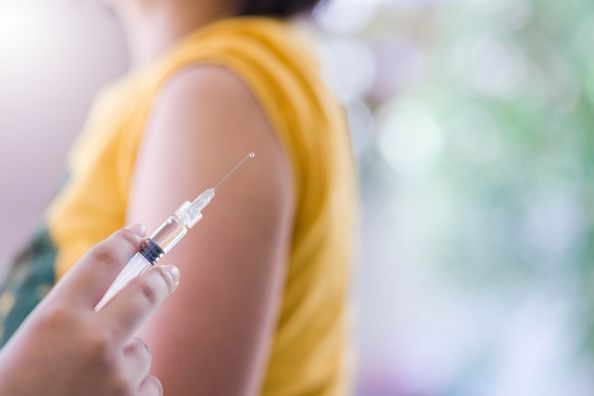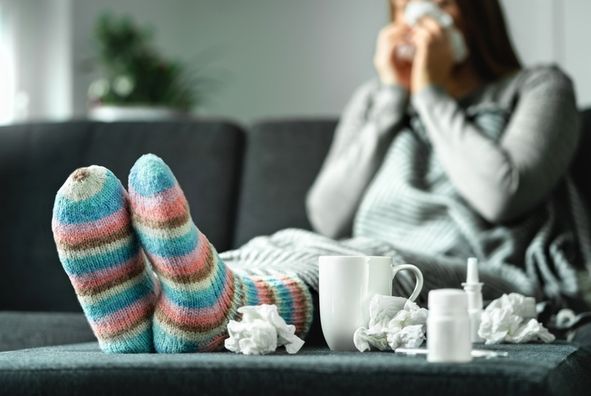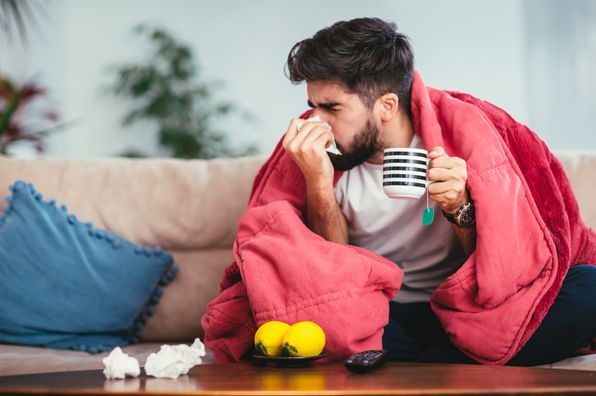As trees grow bare and the weather becomes cooler, many of us are preparing for a long winter ahead. A part of this preparation involves planning for the upcoming flu season coupled with COVID-19. Below are common questions you may have about this year’s flu season.
Should I get a flu shot this year?
The short answer is YES. Getting a flu vaccine this fall is more important than ever. Influenza (or the flu) can cause serious complications and hospitalizations even among healthy people. Whether you have received a flu shot in the past or not, receiving a flu shot this year is an easy way to protect yourself, your family, friends and your community from getting the flu and also help minimize the burden on many healthcare systems, decreasing the number of hospitalizations and unnecessary healthcare visits.
While the vaccine doesn’t eliminate the flu from our communities completely, it can protect you from contracting this year’s most common strains or decrease the severity of your symptoms if you do become infected. Keeping your immune system healthy allows your body to fight any other illness, like COVID-19 or RSV, that you may be exposed to this year.
Who should get the flu vaccine?
Everyone in your family, 6 months of age and older, including pregnant women, should receive a flu shot. It not only protects you; it also protects your family and friends. Chances are, you know someone who falls into a high-risk category. According to the CDC, adults aged 65 and older or people with chronic health conditions, including asthma, diabetes and heart disease, are considered most vulnerable to the flu. For those 65 years old and above, we recommend receiving the high-dose influenza vaccine.
What is the best time to get a flu shot?
Flu season emerges in early fall and can last through Spring. Influenza vaccines are available at Duly Health and Care beginning in September. We encourage everyone to receive their vaccine in the Fall before flu season is at its peak. However, receiving the vaccine any time throughout the flu season can help prevent the flu.
Do flu shots work?
Yes, flu shots are an effective way to protect yourself and those around you from the flu. According to the CDC, flu vaccines have been shown to reduce the risk of flu illness, hospitalization, and severe outcomes. While no vaccine can guarantee 100% protection, getting a flu shot significantly lowers your chances of getting sick and helps lessen the severity if you do catch the flu. It’s an essential step in keeping our communities healthy, especially during peak flu season.
What are the differences between flu and COVID-19?
Flu and COVID-19’s symptoms closely overlap, and everyone may experience symptoms to varying degrees of severity. If you experience any of these symptoms this season, reach out to your primary care provider as they will provide care recommendations and testing options.
Symptoms |
Cold |
Flu |
COVID-19 |
Onset of symptoms |
Gradual |
2 Days |
2 – 14 Days |
Body Aches |
Sometimes |
Common |
Common |
Cough |
Common |
Common |
Common |
Diarrhea |
Rare |
Sometimes |
Sometimes |
Fatigue or Weakness |
Sometimes |
Common |
Common |
Fever, Chills or Shaking |
Rare |
Common |
Common |
Loss of Taste or Smell |
Never |
Never |
Sometimes |
Shortness of breath or difficult breathing |
Rare |
Common |
Common |
Stuffy nose |
Common |
Common |
Rare |
Sneezing |
Common |
Sometimes |
Rare |
Sore throat |
Common |
Common |
Common |
Headache |
Rare |
Common |
Common |
*SOURCE: Centers for Disease Control and Prevention (CDC)
What should I do if I get sick with flu or COVID-19 symptoms?
If you feel ill this season, especially with flu or COVID-19 symptoms, there are several key steps you can take to safely recover and limit the spread of any virus. The most important — limit your exposure to others in your community.
By staying home, you can give your body the opportunity to rest and recover as well as limit the exposure of any virus to your community. As much as you can, self-isolate in a separate room away from others and wear a mask and socially distance yourself when around anyone else. If possible, try to not share a bathroom and personal items, such as cups, eating utensils, towels and bedding. While keeping your distance may be difficult, know that this is only temporary and is important to keep your loved ones healthy.
Practicing healthy habits when sick is also essential. Both the flu and COVID-19 can take a toll on your well-being, making normal day-to-day activities difficult. While on the mend, drink plenty of fluids to prevent dehydration and get plenty of rest. Clear beverages, like water, ice chips and broth, along with sports drinks, are great options to stay hydrated.
It’s also important to contact your primary care provider for guidance as you navigate your illness. We all react differently when exposed to any virus; it’s best to stay connected with your care team and keep a close eye on concerning symptoms. Your provider can share care instructions and advise what to do next, such as determining if you may need a COVID-19 test.
Video visits are conveniently available with Duly primary care providers to discuss your care instructions and next steps.
Once you have recovered, a deep clean will be in order. Learn more about deep cleaning your home, your phone and more to reduce the spread of viruses.
To keep yourself and others safe, stay ahead of this flu season. Dul flu shot clinics are available at several Duly locations throughout the Chicago suburbs. With appointments available Monday — Saturday, you and your family can receive your flu shot at a time and location that is convenient for you.
Schedule your flu shot today >
Health Topics:







